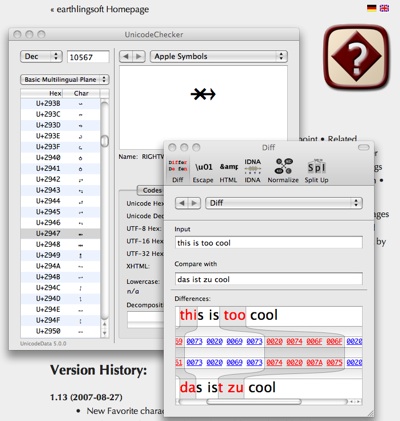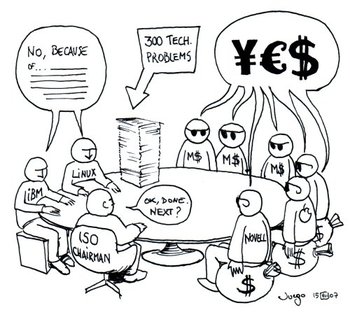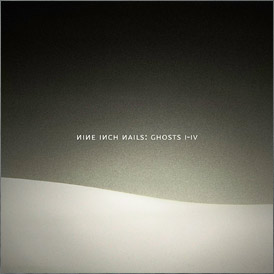Steve Pepper, the former chairman of the Norwegian mirror committee SC34, tells his version of the story which led to the YES vote on OOXML:
[…] at this point, the “rules” were changed. The VP asserted that “Ecma has clearly made steps in the right direction.” The most important thing now was to ensure that OOXML came under ISO’s control so that it could be “further improved”. However, the committee was not allowed to discuss this.
The VP thereupon declared that there was no consensus, so the decision would be taken by Standard Norway.
Halfway through the proceedings, a committee member had asked for (and received) assurance that the Chairman would take part in the final decision, as he had for the DIS vote back in August. It now transpired that the BRM participants had also been invited to stay behind. 23 people were therefore dismissed and we were down to seven. In addition to Standard Norway’s three, there were four “experts”: Microsoft Norway’s chief lobbyist, a guy from StatoilHydro (national oil company; big MS Office user), a K185 old-timer, and me. In one fell swoop the balance of forces had changed from 80/20 to 50/50 and the remaining experts discussed back and forth for 20 minutes or so without reaching any agreement.
The VP thereupon declared that there was still no consensus, so the decision would be taken by Standard Norway.
The experts were dismissed and the VP asked the opinion of the Secretary (who said “Yes”) and the JTC1 rep (who said “No”).
The VP thereupon declared that there was still no consensus, so the decision would be taken by him.
And his decision was to vote Yes.
After leading the committee for over 13 years, Pepper recently stepped down from his position to protest against the this farce.


